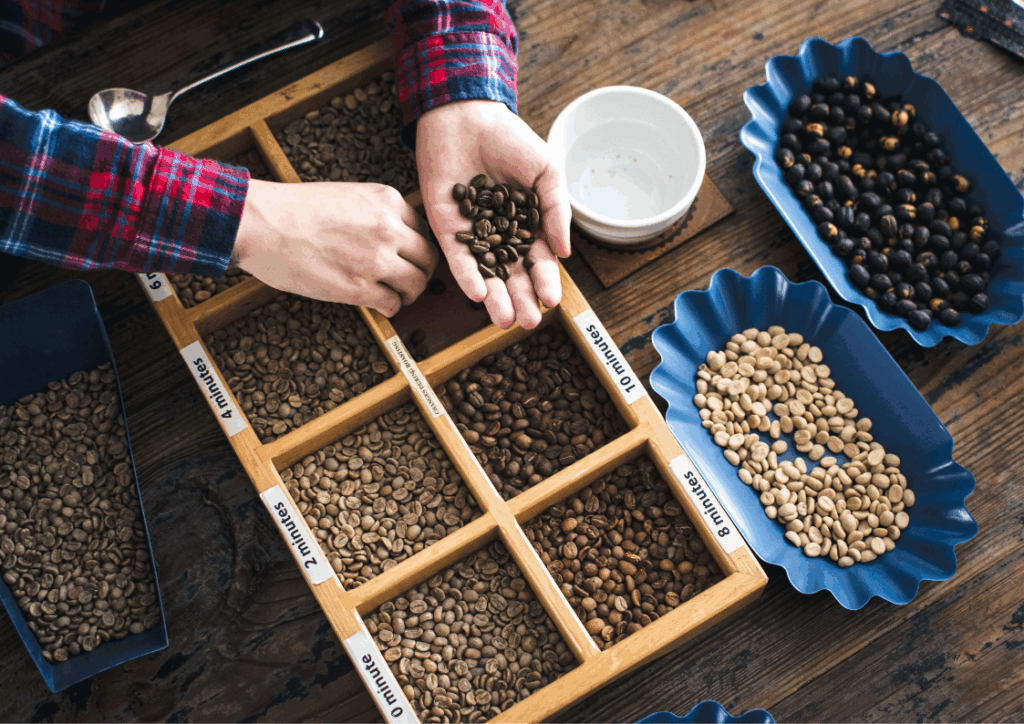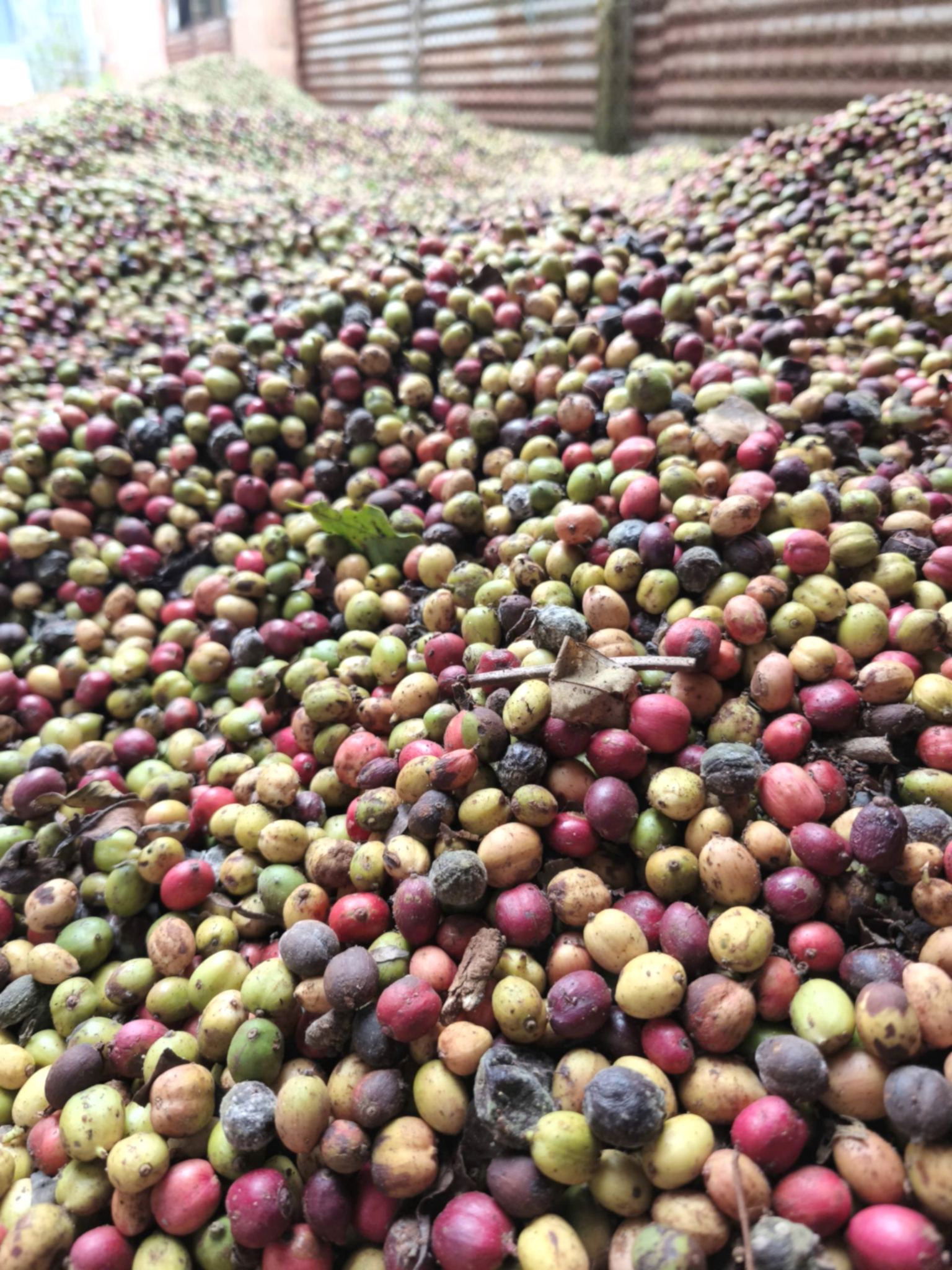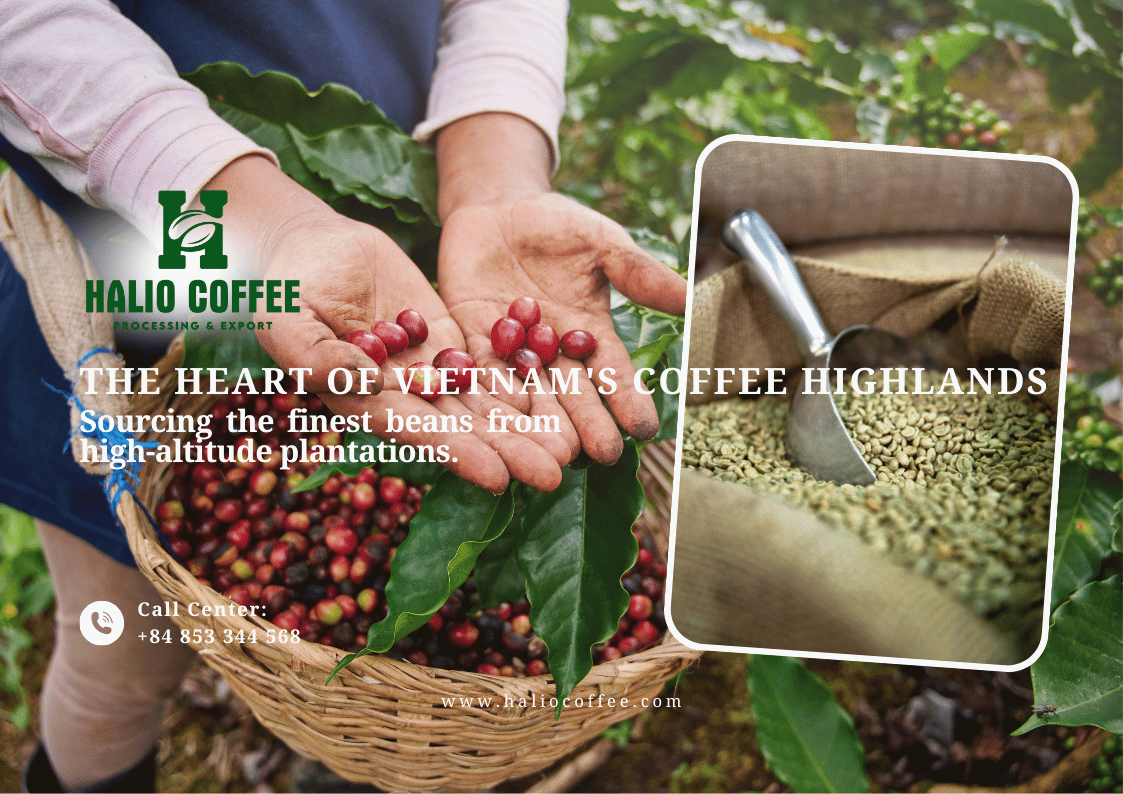Vietnamese Arabica B Grade Coffee: An Essential Bridge in the Global Coffee Supply Chain
In the complex landscape of global coffee sourcing, companies often need a balance between quality, affordability, and consistency. Vietnamese Arabica B grade coffee has emerged as a vital solution that meets this demand. While not classified as premium specialty Arabica, it provides a dependable quality level that supports large-scale roasting operations and cost-sensitive markets.
For companies engaged in roasting or distribution, B grade Arabica offers a versatile product: it can serve as a solid base for blends, a cost-effective option for entry-level specialty lines, or a supplement to premium offerings. Positioned between high-grade specialty Arabica and commercial robusta, this category is indispensable in today’s competitive coffee trade.
The Connection Between Arabica Coffee Beans for Roasting and B Grade Supply
Previously, the focus on Arabica coffee beans for roasting highlighted the diverse flavor potential and flexibility of Arabica in global coffee markets. While top-grade Arabica is highly sought after for specialty applications, large-scale coffee operations often require a more pragmatic balance between quality and cost.
This is where Vietnamese Arabica B grade coffee becomes critical. It ensures that roasters and distributors can still offer the desirable attributes of Arabica while maintaining affordability and volume consistency. By integrating B grade Arabica into their sourcing strategies, businesses can build product lines that satisfy multiple consumer segments, from premium specialty buyers to mainstream coffee drinkers.
Characteristics of Vietnamese Arabica B Grade Coffee
B grade coffee typically falls just below specialty grade, but it retains essential Arabica traits that roasters value. Common characteristics include:
- Balanced flavor profile: Less complex than high-end Arabica, but still smoother and more aromatic than robusta.
- Medium body: Suitable for both blends and single-origin mid-tier products.
- Mild acidity: Lower brightness compared to specialty Arabica, but ideal for espresso-based drinks and mass-market blends.
- Consistency in roasting: B grade beans are stable during roasting, making them reliable for large-scale operations.
Vietnamese Arabica B grade coffee often comes from the same regions as specialty lots—such as Cầu Đất, Sơn La, and Điện Biên—but includes beans that do not meet strict specialty grading standards due to size, uniformity, or minor defects.
The Importance of Vietnam Green Coffee Beans in Context
To understand the positioning of B grade Arabica, it’s essential to look at the broader picture of Vietnam green coffee beans. Vietnam dominates global robusta supply, but Arabica represents a smaller, growing portion of its exports. Within this sector, B grade coffee plays a strategic role:
- It bridges the gap between specialty Arabica and bulk robusta.
- It supports Vietnam’s reputation as not just a robusta giant but a rising Arabica supplier.
- It gives roasters flexibility to diversify sourcing while benefiting from Vietnam’s stable export infrastructure.
By offering both high-grade specialty Arabica and practical B grade options, Vietnam enhances its position as a diversified supplier in the international coffee trade.
Why Roasters Choose B Grade Coffee for Large-Scale Operations
For many coffee companies, Vietnamese Arabica B grade coffee is not simply a lower-tier product—it is a strategic asset. Roasters often select B grade for:
- Blending: B grade beans form the backbone of blends, providing body and balance while specialty beans add complexity.
- Cost management: Rising global Arabica prices make B grade an attractive alternative to maintain margins.
- Volume stability: Large contracts require consistent supply, which Vietnam is well-positioned to provide.
- Consumer segmentation: B grade allows brands to serve mid-tier markets without compromising too much on quality.
In markets where affordability is a key consumer driver, B grade Arabica enables companies to remain competitive while still highlighting the origin of their beans.
Processing and Grading Standards for B Grade Arabica in Vietnam
Vietnam’s coffee industry has made significant progress in standardizing processing and grading systems. For Vietnamese Arabica B grade coffee, this often involves:
- Screen size classification: B grade beans may fall into smaller screen sizes, making them less uniform than specialty beans.
- Defect tolerance: B grade allows for minor defects that do not significantly impact cup quality but prevent beans from being labeled as specialty.
- Processing variety: Washed, honey, and natural methods are used, though washed is most common for B grade to ensure cleaner flavors.
These grading standards are critical for roasters, as they ensure predictable quality and roasting performance across shipments.
Market Demand for Vietnamese Arabica B Grade Coffee
Global demand for Arabica continues to rise, but not all buyers require specialty-grade beans. The majority of coffee consumed worldwide falls into the commercial and mid-premium categories, where B grade plays a crucial role.
In particular, Vietnamese Arabica B grade coffee is in high demand in:
- Asia-Pacific markets, where Vietnam’s proximity reduces logistics costs.
- European markets, which increasingly value sustainable sourcing but still require mid-range pricing.
- North American roasters, who use B grade Arabica in blends for supermarket and food service channels.
This demand reflects the importance of B grade coffee as a reliable, scalable option that complements specialty offerings.
Sustainability in the B Grade Sector
Although the spotlight often shines on high-end specialty Arabica, sustainability is equally important in the B grade category. Farmers cultivating Arabica in Vietnam are adopting sustainable practices, even when beans do not achieve specialty grading. This benefits the entire supply chain:
- Environmental impact reduction: Shade-grown practices and soil conservation help protect ecosystems.
- Farmer resilience: B grade beans provide a steady income, reducing reliance on volatile specialty markets.
- Traceability: Many cooperatives now extend traceability systems to B grade lots, giving roasters confidence in origin claims.
For companies committed to sustainability, sourcing B grade Arabica from Vietnam supports both ethical and business objectives.
Pricing Dynamics and Competitive Advantage
The affordability of Vietnamese Arabica B grade coffee is one of its strongest selling points. While specialty Arabica prices can fluctuate significantly due to climate, demand, or geopolitical issues, B grade typically provides a more stable and accessible price point.
This leads directly into the next area of focus: Vietnamese Arabica coffee beans price. Understanding pricing structures is critical for buyers negotiating contracts and planning long-term sourcing strategies. B grade plays a pivotal role in helping companies manage these financial dynamics without compromising quality too severely.
Opportunities for Blending and Product Development
One of the most powerful aspects of B grade Arabica is its versatility in product development. Roasters and distributors often use it to:
- Create affordable espresso blends that balance quality with price.
- Develop mid-tier single-origin lines targeted at price-sensitive consumers.
- Experiment with flavored coffee bases, where bean subtlety complements added flavors.
- Support instant and soluble coffee production, where consistency matters more than complexity.
For businesses, Vietnamese Arabica B grade coffee opens up product diversification opportunities while ensuring cost efficiency.
Challenges Facing B Grade Arabica in Vietnam
Despite its advantages, there are challenges that need addressing:
- Perception issues: Some buyers mistakenly equate B grade with low quality, overlooking its strategic value.
- Market volatility: While B grade prices are generally stable, they are still affected by global Arabica supply and demand.
- Climate impact: Arabica remains more sensitive to climate change than robusta, putting long-term supply at risk.
Addressing these challenges through improved marketing, stronger sustainability frameworks, and ongoing research into climate-resilient Arabica varieties will be essential for the growth of this segment.
The Future of Vietnamese Arabica B Grade Coffee
Looking ahead, Vietnamese Arabica B grade coffee is expected to remain a cornerstone of the country’s Arabica sector. Its role as a bridge product between specialty Arabica and robusta ensures that it will continue to support roasters and distributors worldwide.
With rising attention on traceability, sustainability, and affordability, B grade Arabica from Vietnam is poised to gain greater recognition as a practical, reliable, and competitive option for the global coffee industry.
- Optimizing Your Cafe Green Bean Portfolio in 2026
- A Consultant’s Guide to Visiting Coffee Farms in Vietnam
- A 2026 Strategic Guide to Sourcing Raw Coffee Beans for Roasting
- Fresh Robusta Coffee Beans Supplier: Elevating Vietnam’s Specialty Robusta to Global Markets
- Coffee Prices Today, Nov 28: Robusta Rebounds on Vietnam Storm Fears; New York Closed for Thanksgiving







